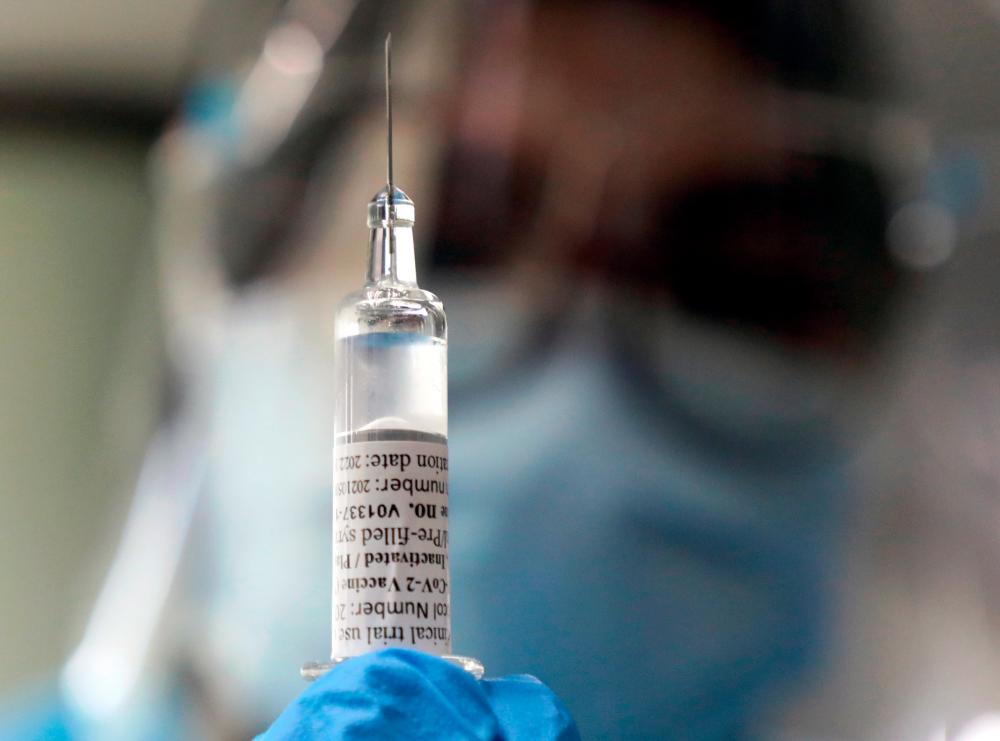PETALING JAYA: Malaysia is facing an epidemic of sorts with a significant increase in childhood diseases in the country, according to the Malaysian Paediatric Association (MPA).
Its representative Datuk Dr Zulkifli Ismail said MPA data for 2022 showed that cases of pertussis, or whooping cough, jumped more than 800%, diphtheria increased by 80% and measles saw a 63% hike.
“The rise in cases of vaccine-preventable childhood diseases in the country follows the Covid-19 pandemic, which took priority over other health concerns,” he said.
Nationwide, cases of pertussis leapt 818% in 2022 to 101 from just 11 recorded in 2021. Incidents of pertussis, diphtheria and measles fell during the Covid-19 pandemic but increased again last year.
Experts in public health and leading paediatricians such as Zulkifli, Dr Amar-Singh H.S.S. from Ipoh Hospital and private practitioner Dr Musa Mohd Nordin concurred that even a small decline in vaccination rates could disrupt herd immunity, potentially leading to disease outbreaks in the country.
Zulkifli said the current situation showed a dangerous trend as Malaysia has been trying to eliminate measles, but the deadline has been deferred numerous times.
“The current goal is for next year. But after looking at the data, I’ve concluded that it is impossible to achieve one case per million people for three consecutive years.
“This is because we are unable to have nearly 100% of the population protected against measles, mumps and rubella (MMR) and diphtheria, tetanus and pertussis,” he said.
Universiti Kebangsaan Malaysia public health medicine specialist Prof Dr Sharifa Ezat Wan Puteh attributed the decline in vaccination rates to the diversion of resources and attention to the Covid-19 pandemic and its management.
“This disrupted the steady progress made in vaccinating against childhood diseases in previous years and resulted in a backlog of missed (vaccination) opportunities.”
Sharifa said the pandemic has undoubtedly affected vaccination rates and herd immunity in the country.
“The halt in routine immunisation programmes and the temporary closure of clinics and healthcare facilities led to a significant decrease in access to vaccines.
“As a result, the population’s immunity levels have decreased, causing it to be more vulnerable to diseases that can be fatal to children.”
She added that the loss of herd immunity increases the prevalence of vaccine-preventable childhood diseases, resulting in widespread transmission among the community.
Sharifa said in response to this, the government has implemented various initiatives to address the problem, such as providing free vaccinations under the National Immunisation Programme.
“However, more efforts are required to trace potential cases, identify hotspots and prioritise catch-up vaccination programmes, which must reach marginalised communities, urban poor areas and rural regions.”
She emphasised that it is essential to acknowledge the specific regions and demographics that are most affected by the lower vaccination rates.
Sharifa also said the focus should be on low-income states and urban poor areas. These can be identified through the Statistics Department national income per person data and are crucial to ensuring targeted interventions.
She said primary care clinics and general practitioners must conduct regular screenings as well as active and passive case detection.
Parents should also be allowed to take time off from work to accompany their children for immunisations without any salary deduction.
“Healthcare professionals and the government have a vital role in promoting disease awareness and increasing vaccination rates.
“Continuous efforts must be made to provide accurate information and ensure vaccines are accessible and affordable to all.
“We should also dispel myths such as the MMR vaccine causing autism and mothers believing that breastfeeding their child will protect them from diseases.”
Sharifa said schools and educational institutions should also play a significant role in addressing the issue of lower vaccination rates.
“Collaboration between the Education and Health ministries is necessary to implement catch-up programmes in schools, with potential sponsorship from private organisations.
“By aggressively making these efforts, Malaysia can protect its children from unnecessary suffering and prevent outbreaks of vaccine-preventable diseases,” she said.














